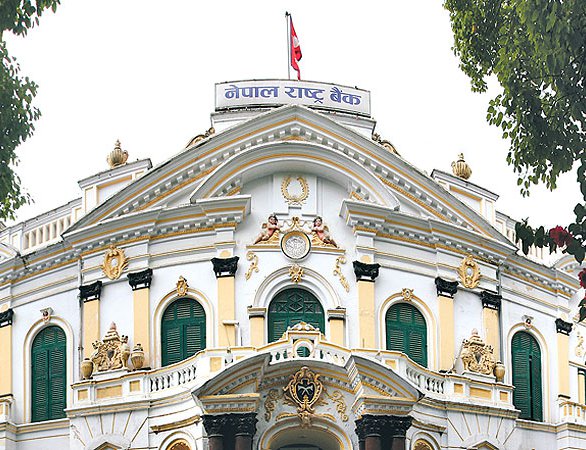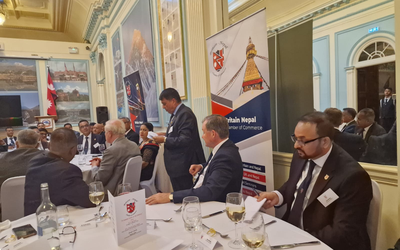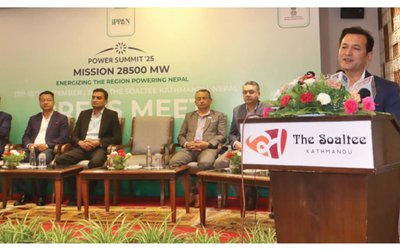
The tenure of Baburam Bhattarai-led government has ended without giving the economy of the nation any great shape. In fact, the country is still waiting for a full-fledged budget for the current fiscal year and the economy is struggling. Businessmen also have no hopes from the current transitional election government for addressing the economic issues.
The government has been struggling to give the economy some direction. The capital expenditure, which is seen as a major factor for economic push, has been consistently poor. The government has been able to spend just over 25 percent of the total capital expenditure in the first eight months of the current fiscal year.
The government has spent only 26.14 percent of the total targeted capital expenditure during the first eight months of the current fiscal year, according to the Ministry of Finance.
If the latest macroeconomic report of Nepal Rastra Bank (NRB), which is based on data from seven months of the current fiscal year, is analyzed, it is clear that the economy is suffering.
The (year-on-year) y-o-y CPI inflation increased by 10.1 percent in mid-February 2013 compared to 7.0 percent a year ago.
The Balance of Payment (BOP) situation, though on the positive side, has been consistently moving on the negative direction. The overall BOP recorded a surplus of NRs. 1.59 billion during seven months of 2012/13 compared to a surplus of NRs. 76.28 billion during the same period of the previous year.
Likewise, the current account (revenue from exports minus payments for imports) has posted a deficit of NRs 1.71 billion in the first seven months of the current fiscal year.
The current account posted a deficit in the review period compared to a surplus of NRs. 34.67 billion in the same period of the previous year.
“The decline in surplus in the current account was primarily due to a substantial rise in the import of merchandise and services as well as the slow growth of workers' remittances in the review period,” states the NRB report.
The growth in remittances, which have provided a life line for the economy and have saved its continuous fall, has also been decreasing.
Remittances increased by 19.6 percent to NRs 225.06 billion. But, the growth rate has been decreasing and it has decreased from 35.5 percent recorded in the same period last year.
During the review period, the total government spending also decreased. The spending decreased by 4.4 percent to NRs. 132.33 billion in contrast to an increase of 28.2 percent in the corresponding period of the previous year.
“The delay in adopting a full-year budget for 2012/13 was responsible for the decline in total expenditure during the review period,” states the report.
Likewise, the government revenue grew by 20.3 percent to NRs. 154.59 billion. Such revenue had risen by 19.3 percent to NRs. 128.47 billion in the corresponding period of the previous year.
Unfortunately, the revenue grew on the back of the rising imports. In the seven-month period, merchandise import surged by 24 percent to Rs 316.21 billion. In the same period last year, import had increased by 16.9 percent to Rs 254.95 billion.
Import from India went up by 26.1 percent during the review period compared to an increase of 11.6 percent in the same period of the previous year. Likewise, import from other countries rose by 20.3 percent compared to an increase of 28.1 percent in the corresponding period of the previous year.
“Import from India increased primarily owing to an increase in the imports of petroleum products, vehicles and spare parts, rice, cement and M.S. billet, among others. Likewise, import from other countries increased,” says the report.
Merchandise export went up by mere 5.6 percent to NRs. 44.98 billion during the review period.
The total trade deficit during seven months of 2012/13 surged by 27.7 percent to NRs. 271.22 billion compared to an increase of 17.6 percent during the same period of the previous year.
The gross foreign exchange reserves also decreased by 0.4 percent to NRs. 437.85 billion in mid February 2013.
Foreign aid and loan coming to the nation also decreased. “During the seven months of 2012/13, while the foreign cash loan amounted to NRs. 2.29 billion, foreign cash grants stood at NRs. 11.71 billion. Such receipts were NRs. 2.79 billion and NRs. 24.27 billion respectively in the corresponding period of the previous year,” states the report.

Debesh Adhikari
Adhikari is a computer science student and writes on various contemporary issues.
- The UK Expressed Deep Concerned About Tensions in Nepal
- Mar 09, 2017
- Development Partners and Ministry of Education Agree to drive quality education
- Sep 28, 2016
- END HUNGERNepal plans to end hunger by 2025
- Mar 14, 2016
- UK Hopes For Inclusive Resolution For Nepal
- Sep 17, 2015
- Micromax Launches Bolt D320 For Nepali Market
- Aug 07, 2015















